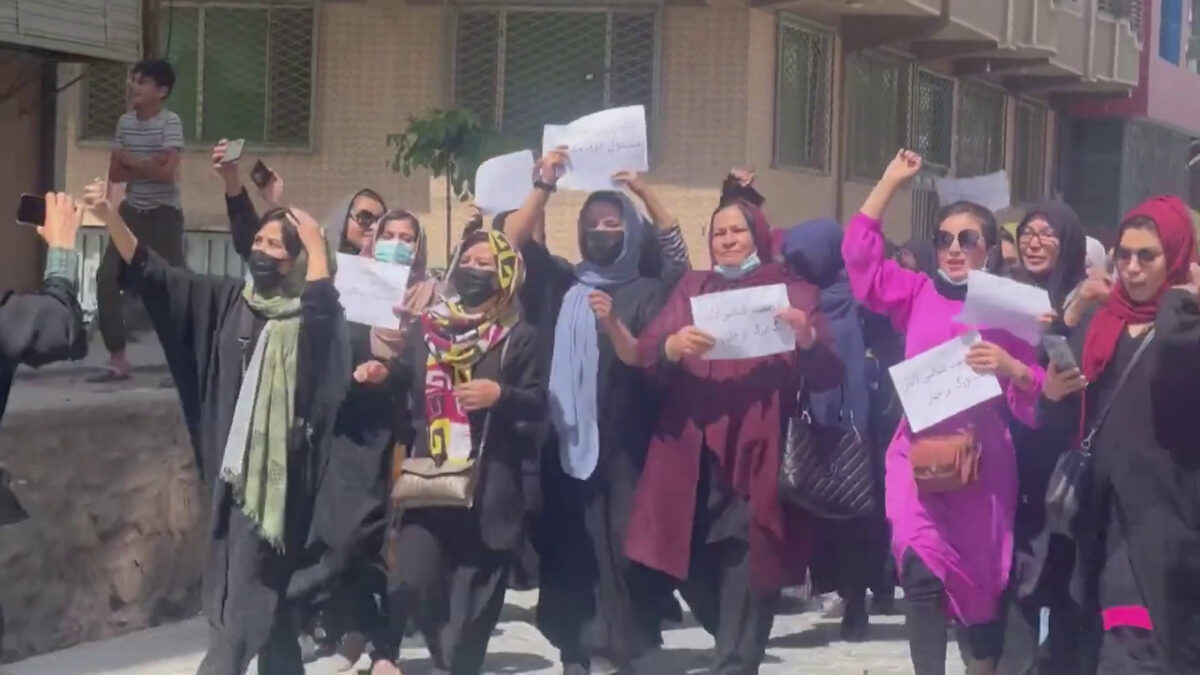As the one-year mark approaches since the Taliban’s imposition of a ban on women’s work, here is a look at both domestic and international responses to the restrictive policies affecting women in Afghanistan.
The Taliban consistently justifies these restrictions, including the prohibition of women’s employment in non-governmental (international) organizations, by invoking Islamic principles and Sharia law.
The Organization of Islamic Cooperation, representing Muslim nations globally, has taken a stand against these restrictions. Contrary to the Taliban’s claims, the organization has disassociated these limitations from Islam, holding meetings and sending delegations to Kabul to engage with Taliban officials.
Since the Taliban’s takeover of Afghanistan on August 15, 2021, each restriction imposed on women and girls has been couched in the language of Sharia and Islam.
On December 24, 2022, the Taliban added a new restriction, barring women and girls from working in non-governmental (international) organizations in Afghanistan. This decision disrupted the economic stability of numerous families whose primary earners were women and girls.
A woman affected by this restriction lamented, “Poverty, destitution, hunger, and unemployment have peaked in Afghanistan. I am trying to find a job, but there is no work. We are in a lot of trouble.”
Despite the Taliban’s insistence that these restrictions align with Sharia, the Organization of Islamic Cooperation has actively worked to challenge this narrative. In January 2023, the organization held a special meeting addressing the restrictions on Afghan women and girls. Later in November, they conducted another meeting titled “Women in Islam,” emphasizing the importance of women’s education, work, and participation in public life.
The Organization of Islamic Cooperation, in several announcements, expressed concern over the restrictions on Afghan women and girls. The organization welcomed statements from member states, the World Academy of Islamic Jurisprudence, the Organization for the Development of Women, the Permanent Independent Commission for Human Rights, Al-Azhar Al-Sharif, the Council of Senior Scholars in Saudi Arabia, and the Union of the Muslim World, all highlighting the position of Islamic Shari’a.
In April, the organization voiced deep concern over the reported ban on the work of women and girls in United Nations institutions in Afghanistan. The new order intensifies restrictive measures, including bans on education and employment in both government and non-governmental organizations.
Within Afghanistan, some religious scholars and Islamic researchers consistently argue that the Taliban’s restrictions on women and girls lack a foundation in Islam and Sharia.
“The restrictions imposed by the caretaker government (Taliban) on education, study, and work for women in Afghanistan have no Sharia foundation,” said Fazal Hadi Wazeen, a researcher of Islamic studies.
Despite these efforts, the Taliban continues its strict stance, leaving Afghan women and girls in complete misery and hopelessness for over two years.





